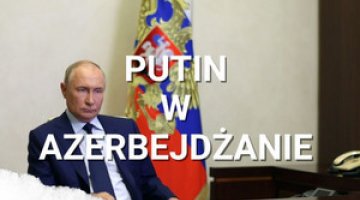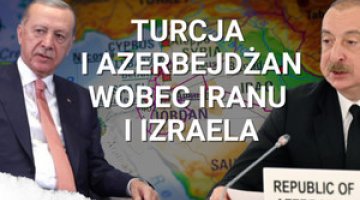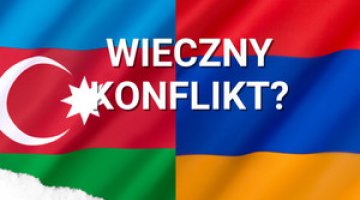Armenia and Azerbaijan: any closer to a peace treaty?
On 31 August in Brussels, Armenia’s Prime Minister Nikol Pashinyan and Azerbaijan’s President Ilham Aliyev (together with President of the European Council, Charles Michel) discussed the settlement of the Nagorno-Karabakh conflict and the normalisation of bilateral relations: delimitation of the border, security in the frontier region, unblocking transport routes, the release of prisoners of war, finding out what happened to missing persons and, finally, the future of Nagorno-Karabakh itself. It was agreed that the Ministers of Foreign Affairs of both countries would meet within a month and continue work on the draft peace treaty. The next meeting between Aliyev and Pashinyan is expected to take place in November (in Brussels).
Commentary
- This was the sixth meeting of the Prime Minister of Armenia and the President of Azerbaijan after the end of the Karabakh War in 2020 and the fourth one in Brussels (the previous meetings took place in December 2021 and in April and May this year; previously they met twice in Russia). Despite the lack of measurable effects, such as signed documents or agreements, and repeated escalations of tension in the conflict zone (the last one took place at the beginning of August), some progress in negotiations is noticeable. For example, the arrangements made during previous meetings have been implemented (as announced, a bilateral commission on the delimitation of the common border, headed by deputy prime ministers, was established and held two meetings, and the time and place of its next meeting were also specified). The continuation of dialogue also demonstrates this progress.
- A number of specific issues need to be resolved when the mutual distrust between the two countries is still observed. These hamper the finalisation of the peace process, i.e. concluding a treaty envisaging the establishment of diplomatic relations. The internal situation in Azerbaijan and Armenia is an additional risk factor. There is concern that any compromise will be viewed by the residents and part of the elite of both nations as a betrayal of national interests and used by the opposition to attack the government (this concerns Armenia to a much greater extent). For this reason, the announcements issued in Baku and Yerevan after subsequent meetings always differ slightly, and the details of the talks are not disclosed.
- Since Charles Michel has arranged another meeting of the leaders of Armenia and Azerbaijan, it may be stated that the EU is taking the initiative in the Nagorno-Karabakh peace process. The deputy prime ministers of the two countries recently met on 30 August in Moscow (in addition to the bilateral delimitation commission, both are participating in a tripartite Armenian-Azerbaijani-Russian working group tasked with preparing for unblocking the regional system of transport routes). However, their next meeting will take place in Brussels. Russia's prestige has been diminished by the fact that its peacekeeping forces deployed in the conflict area are unable to prevent local armed incidents and escalations of tension. This does not mean that Russia’s position in the South Caucasus has been permanently weakened. Moscow may use its instruments (political, military and economic) and influence (for example, among ethnic Armenians in Nagorno-Karabakh) to destabilise the conflict in the region and thus force solutions beneficial to itself, such as extending the presence of peacekeepers. However, it must take Turkey's interests into account. If Russian-Turkish relations were to deteriorate, Russia would find it very difficult to trade with foreign countries, given the war in Ukraine and the sanctions. Turkey was not mentioned in the communiqués after the meeting between Aliyev and Pashinyan; the Armenian-Turkish normalisation process runs in parallel with the Karabakh peace process.
- A few days before the meeting, the Armenian side handed over to Azerbaijan the town of Lachin and two villages situated in the Lachin corridor connecting Armenia with the separatist republic of Nagorno-Karabakh. This resolved another issue listed in the document ending the Second Karabakh War (9/10 November 2020). Since September, there have been transit traffic on the new road (located slightly to the south of the old one), and the posts of the Russian peacekeeping forces have also been moved to it. The fact that the newly built road was commissioned earlier than planned (the document states that its route would be determined within three years, i.e. until autumn 2023) is the result of decisive actions and the assertiveness of Baku, which wants to utilise the war success and integrate the regained territories with the rest of the country as soon as possible. Azerbaijan pushed through this solution, capitalising on its advantage over Armenia, the support from Turkey and Russia's passiveness. However, it must bear in mind that any such further steps could lead to violent protests in Armenia, and the possible fall of Pashinyan would mean a significant slowdown, if not a freeze on the peace process.





